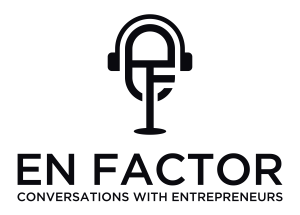Recently I was reading about the role of education in alleviating poverty. It is often difficult to find the causes- like a tree, poverty has many roots. However, experts seem to agree that one of the key factors is education. Of course, not every person without an education is living in poverty, but among those who are, most lack a basic education. Education can be the pathway to jobs and an income that a family needs to not just survive but to thrive. Research has shown that education does and can, in fact, have a significant impact on poverty levels.
This research reminded me of the recent Enfactor podcast with my good friend and colleague, Dr. Michael Morris. Dr. Morris is a professor of entrepreneurship and social innovation at the Keough School of Global Affairs at the University of Notre Dame where he leads the Global Partnership for Poverty and Entrepreneurship. I have known Mike since our graduate school days at Virginia Tech, I have worked with him and watched his prolific career grow as a founder of numerous university programs in the US and around the world. He has also authored several books and hundreds of publications. Mike is truly a thought leader in entrepreneurship education. While he has developed programs for students from all walks of life, he has decided to dedicate his work, at what he calls the “back end of his career,” to better understanding entrepreneurship as a pathway out of poverty.
One of the really cool aspects of being the host of EnFactor podcast is that I get to ask my guests questions about their background and their motivations. Although I had socialized and worked with Mike for several decades, there was still a lot I didn’t know about him. As we talked I learned that he grew up in a military family and had moved around a great deal. After high school, he went into the military for a few years and then to college. When he finished his master’s degree in economics his advisor convinced him to forgo a job he had as an economist and teach economics at a nearby HBCU (Historically Black Colleges and Universities). When he took the position, he planned to teach one year and then move on to a job as an economist. But getting a standing ovation from his students at the end of his time there, made him realize that he had found his calling and he went on to get a PhD.
When I asked Mike why he has chosen to focus on entrepreneurship and poverty, he told me that what has always intrigued him the most has not been the superstar entrepreneurs, the one in million who are the legends of success. Instead, it has been the other 99%. In particular, he has been interested in the power of entrepreneurship for those in more adverse circumstances. Frustrated with the notion that entrepreneurs are born, Mike believes that “..what’s beautiful about entrepreneurship is that it is democratic … it is about empowering anybody and everybody.” Hence his dedication to figuring out how to help people transform their lives through entrepreneurship.
Besides helping individuals transform and improve their lives, the collective impact of Mike’s work has the potential for far reaching impact. Mike acknowledges that a big part of the problem is that it is very difficult to get good data on poverty and the impact of entrepreneurship. We don’t have a lot of evidence-based research on how many businesses are started by those who live in poverty or what the impact of those businesses are on the economy. But we do know that poverty is a significant problem. According to some of the research on poverty:
· 22% of the world’s population live in poverty (less than $3.2 a day)
· 10% of the world’s population live in extreme poverty (less than $1.9 a day)
· One third of the urban population across the globe lives in a slum
While poverty rates have remained relatively stagnant since the 1960tys among developed economies, they have been decreasing every year until this past year in the rest of the world. However, poverty rates are now expected to go up for the first time since 1998. Mike suggests that this is evidence of the impact that entrepreneurship was already having on reducing poverty. The issues associated with poverty may be even more critical than they were a year ago as we all recover from the economic impact of Covid.
This is difficult work, often those in poverty are already living with extreme challenges and do not have a safety net of any kind. This is not simply about helping them have more self-confidence or to develop a belief in themselves. There are many layers to consider and it is about helping each individual entrepreneur find a way to apply the basics of entrepreneurship. Every situation is unique, and this is the challenge Mike has taken on. Mike has helped those who have been forced to be focused on survival to take steps towards using the tools of entrepreneurship to transform their lives. It is an innovative approach to poverty that has not yet been fully explored nor addressed. I am personally thankful to have someone like Mike leading the way.
Photo courtesy of @jaredd_craig on Unsplash used by license




